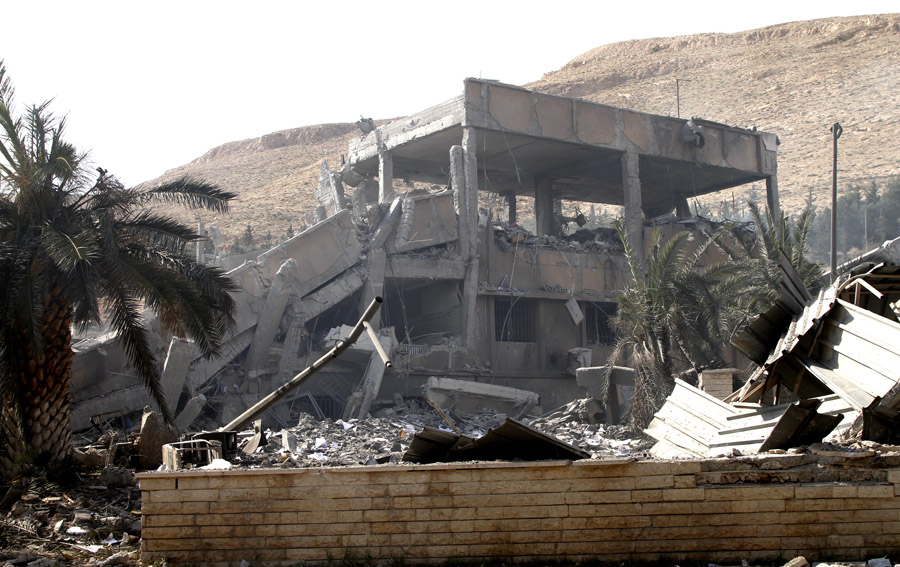Streak of a missile across Damascus' sky


DAMASCUS, Syria - It was not an explosion that woke us up, but a call from a friend in Damascus to alert us: The strikes had begun. It was just after 4 am on Saturday. I rushed out of my hotel room up to the Associated Press office a few floors above.
By the time I got there, antiaircraft guns were at work, their tracers dotting the night sky over the Syrian capital. Our office, facing east, provided an almost theatrical view.
To the left was the mountain overlooking Damascus from which Syrian air defenses were firing. Straight in front of us was the orange glow from fires on the city outskirts where the airstrikes carried out by the United States, Britain and France had hit.
I was already all set up. Days earlier, I had put my camera in place on its tripod out on the balcony, hooked to a remote control so I could operate it from inside.
The surface-to-air missiles began to fire. This was the shot I had planned for. My first picture was no good it was out of the frame. But the second captured the moment: The streak of the missile, drawn out in the long exposure, lanced up into the night, another one further behind it.
The AP team had arrived in Damascus from Beirut earlier in the week. We were far from the only spectators in those pre-dawn hours.
Many Damascus residents had spent the past nights on their rooftops watching for an attack. If they were fearful about where the standoff between Syria, Russia and the US over an alleged chemical attack was going, few showed it.
There was no sense of dread, and Damascus' main market, Souq al-Hamidiyya, was packed with thousands of people the day before the attack.
Hours after the strikes, officials took journalists to the Syrian Scientific Research Center on Damascus' eastern edge. The strikes had reduced the complex to smoldering rubble.
But the sense of defiance was in full force on Saturday. Residents massed in the streets, waving Syrian flags and chanting in support of President Bashar Assad. In the eyes of government supporters, it seemed, the strikes had come and gone.
Associated Press

































